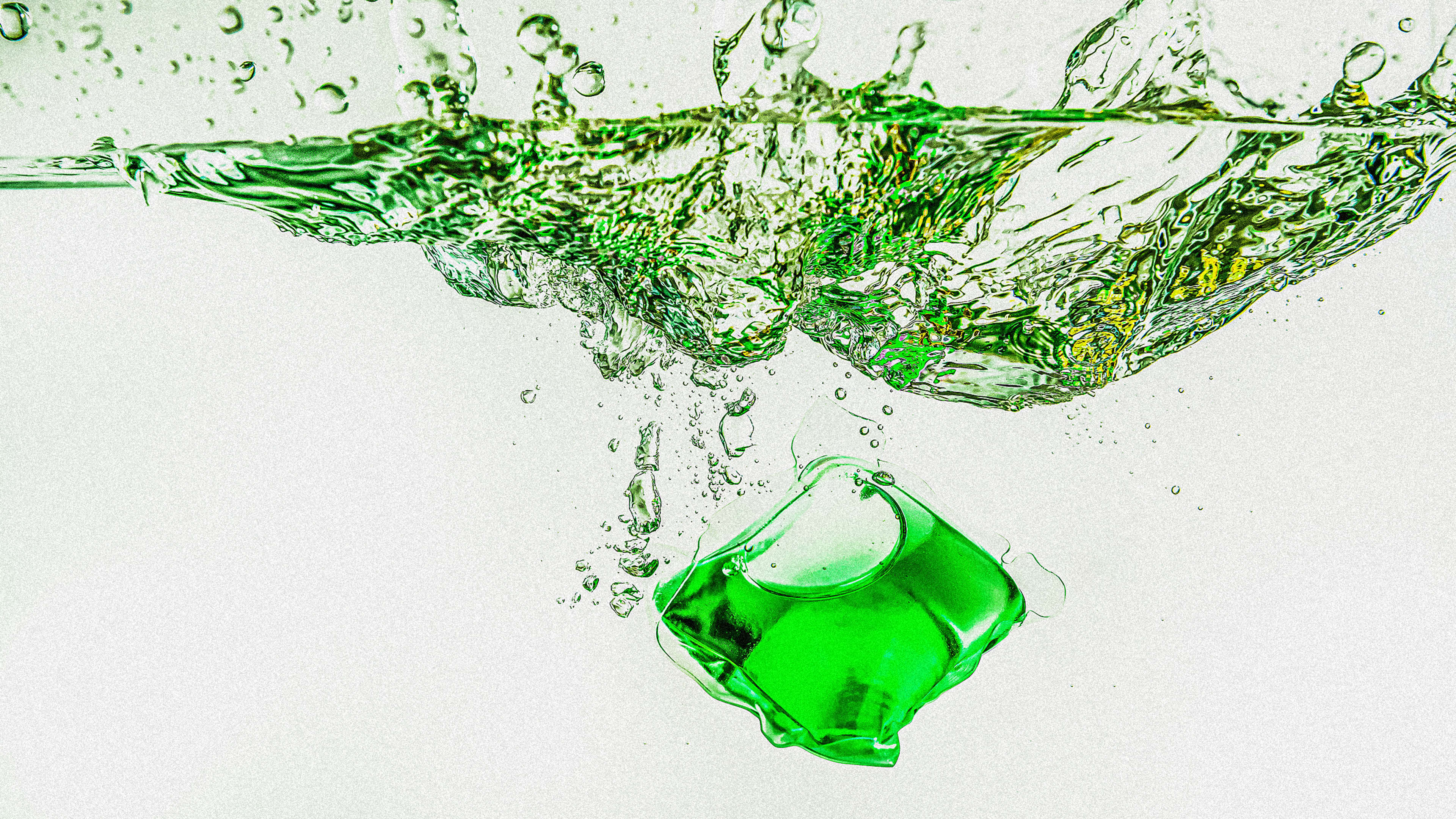Laundry detergent takes up the largest global share of the household cleaning products market, and detergent pods and sheets offer convenient single-use options for cleaning. But research shows that plastic film from these products can linger with the potential for health and environmental implications. Now the DTC cleaning-product company Blueland and the Plastic Pollution Coalition are petitioning of the Environmental Protection Agency (EPA), hoping for regulation.
Many detergent sheets and the plastic film from detergent pods include polyvinyl alcohol, or PVA, a synthetic polymer that is water-soluble and can be biodegradable. And yet, research from Plastic Oceans International, commissioned by Blueland, reveals that more than three-quarters of these intact plastic particles could remain “after passing through conventional wastewater treatment,” thus impacting the world’s bodies of water and soil.
“Polyvinyl alcohol can be degraded—it just requires extremely specific conditions,” says Sarah Paiji Yoo, cofounder and CEO of Blueland, which is announcing the EPA petition on Tuesday. “Industry veterans were already telling us those scenarios likely don’t exist. But rather than have that be a debate or question, let’s have real, fact-based conclusions.”
This finding underpins the petition, which includes as signatories a number of sustainability and environmental groups, including Beyond Plastics, the Shaw Institute, Lonely Whale, and others. The petition makes two primary requests: that the EPA tests PVA, particularly its use in detergent sheets and pods, and that the agency removes PVA from its Safer Choice program in the meantime.
The laundry detergent pod market is nearing $10 billion, and PVA’s uses extend beyond detergent to hospital laundry bags, plastic wrapping, toilet cleaners, and other products. When PVA from these products end up in wastewater, it can then absorb chemicals and ultimately find its way into the food chain, leading to its detection in breast milk among other potential dangers.
Yoo feels encouraged by recent action against plastics in products, pointing to a previous ban on microbeads and city bans on plastic straws.
“Our vision has always been to create a world where businesses and individuals are active stewards of our planet through thoughtful production and consumption,” Yoo says. “I think this is a great example of the type of change that we hope to incite in our industry as well as with consumers.”
Update, Nov. 15:
In response to the research commissioned by Blueland, the American Cleaning Institute, a trade association, issued a statement criticizing the petition and citing research that suggests the biodegradability of PVA used in laundry detergent. “The publication that these interest groups are relying upon to attack their competition’s products presents a flawed model based on theoretical assumptions and uses flawed data in that model,” the statement included, adding that the campaign “ignores decades of science and research demonstrating the biodegradability of this chemistry.”
Blueland and the Plastic Pollution Coalition, however, question just how biodegradable these products these products might be and request more research in their petition to the EPA.
Recognize your brand’s excellence by applying to this year’s Brands That Matter Awards before the early-rate deadline, May 3.
